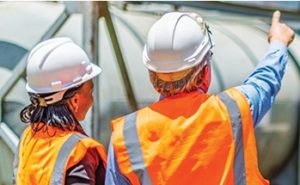
New OSHA Recordkeeping Rule 2024
Learn about OSHA’s new electronic recordkeeping rule for high-hazard businesses in 2024. And see how Safety Reports can streamline your OSHA form submissions effortlessly.
View our safety posts, blogs, and articles. Stay up to date with COVID-19 as well as Safety Reports updates.
Enjoy some helpful tips and interesting information Safety Reports creates with our SR Blogs!

Learn about OSHA’s new electronic recordkeeping rule for high-hazard businesses in 2024. And see how Safety Reports can streamline your OSHA form submissions effortlessly.

OSHA urges employers to be prepared to keep their workers safe during extreme weather events. Learn how the Safety Training App can help.

Learn about several factors you should consider when determining the frequency of your safety inspections.

Injury in the workplace is an unfortunate occurrence that requires specific actions. Learn about the five steps you should take after a safety incident.
Read SR use cases.

Leveraging Safety Reports enables risk control inspectors to focus more time on improving client safety programs. See how.
Apps
Resources
Company
© 2024 Safety Reports, an Align Technologies™ product | Safety Management Solutions